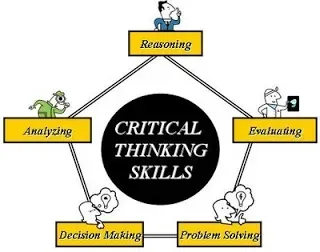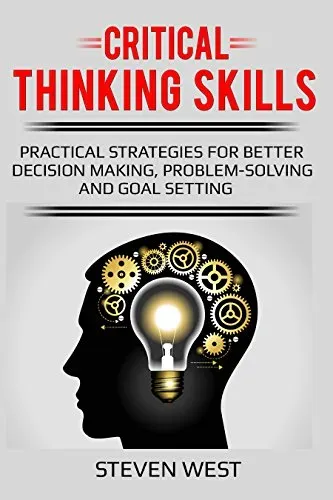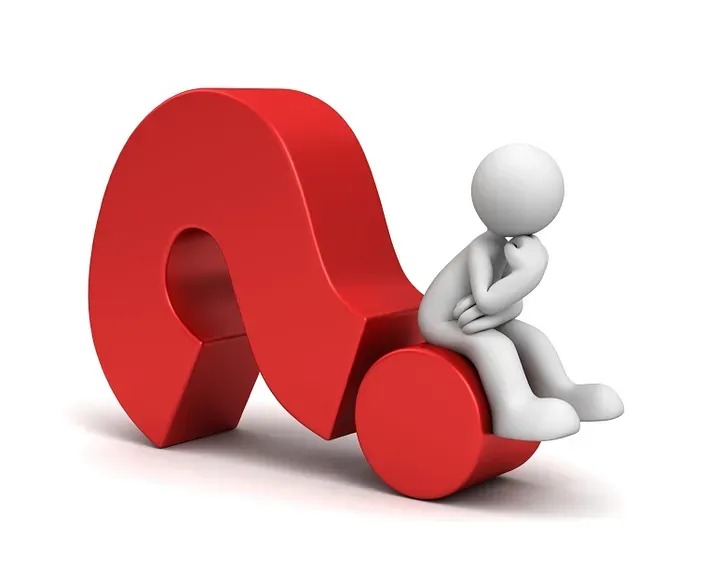Problem Solving & Critical Thinking Skills Necessary For Everyone.

Image source
https://www.amazon.com/Critical-Thinking-Skills-Strategies-Problem-Solving-ebook/dp/B076WVR3P3
Problem solving and critical thinking refers to the ability to use knowledge, facts, and data to effectively solve problems. This doesn’t mean you need to have an immediate answer, it means you have to be able to think on your feet, assess problems and find solutions. The ability to develop a well thought out solution within a reasonable time frame, however, is a skill that employers value greatly.
Critical thinking is the process of critically judging the validity of information while using a specific set of criteria that help you to better understand your outcomes, thereby enabling you to make better and more educated decisions about the problems confronting your reality.Someone with critical thinking skills is able to do the following:
understand the logical connections between ideas
solve problems systematically
identify, create and evaluate arguments
reflect on the justification of one’s own beliefs and values
detect inconsistencies and common mistakes in reasoning
identify the relevance and importance of ideas
“The better critical thinker you become, the more effective your decisions will become, and the more likely you are to achieve your goals and objectives.”
https://sites.google.com/site/twentyfirststcenturyskills/evaluation
You must first understand and structure the problem. This stage involves observation and inspection (looking carefully at things), fact-finding and developing a clear picture of the problem. Gain more information about the problem to increase your understanding. You might need to do some analysis — looking at history and/or numbers and/or a variety of sources of information. You may need to do some research if the information you need isn’t available.
“Employers say they need a workforce fully equipped with skills beyond the basics of reading, writing, and arithmetic to grow their businesses. These skills include critical thinking and problem solving”, according to a 2010 Critical Skills Survey by the American Management Association and others.

Image source
Often, if you start with the same definition of a problem that everyone else has, your thinking will be the same and you will come up with the same solutions. Therefore, you should take time diagnosing and exploring and perhaps redefining the problem.
“You needs critical thinking skills to be the best problem-solver”
Another way to tackle this is to be clear about your goals — What are you trying to achieve? What would be a good outcome if the problem was resolved? What would good look like?
The more complex the problem, the more information you will need to obtain. Sometimes you will find that there are several parts to the problem and each requires a different solution. Breaking things down might make a complex problem easier to solve.
Once you’ve determined the problem, analyze it by looking at it from a variety of perspectives. Is it solvable? Is it real or perceived? Can you solve it alone or do you need help? Sometimes by looking at it from many angles you can come up with a resolution right away. You may also reveal a bias or narrow point of view that needs to be broadened.
You may have had some ideas about how to solve the problem at the beginning, but just list these ideas along with any others — don’t dismiss them too quickly.
Problems can be solved in many ways. Brainstorm a list of several possible solutions. Put down anything that comes to mind and then go over the list and narrow it down to the best possibilities. Having several viable options leads to obtaining the best results.
Getting other people involved in considering solutions may reveal issues or factors that you are unaware of, allows you to tap into the expertise of others and may make people feel more committed (buy in) to the final solution agreed.
You must consider all the possible solutions and evaluate each one. You might decide on the pros and cons — or advantages and disadvantages — of each solution. You may use some sort of scoring or rating system to rank the different solutions. Then you have to decide which solution is the best one — even if it is not perfect.
This is perhaps the most complex part of the problem solving process. Some solutions may not be possible, due to other issues like time constraints or budgets. It is important at this stage to also consider what might happen if nothing was done to solve the problem — sometimes trying to solve a problem that leads to many more problems requires some very creative thinking and innovative ideas.
Finally, make a decision on which course of action to take — decision making is an important skill in itself. You may have to negotiate with people here and persuade them about the chosen solution.
This stage involves accepting and carrying out the chosen course of action. Sometimes, during implementation more problems may arise especially if identification or structuring of the original problem was not carried out fully. This may require you to go back to an earlier stage or even start again. This is what we call an iterative process. In some situations — for example, in new product development — we call this prototyping. Producing a “near enough” solution so further work can be done to finalise the product.
The final stage is about checking and reviewing the outcomes of problem solving over a period of time, including seeking feedback as to the success of the outcomes.
It is good practice to keep a record of decisions (and the reasons why they were made) and the outcomes and any additional problems that occurred. This will improve future problem solving activities.
Critical thinking is an essential habitual thought process that is imperative to cultivate and grow on a daily basis. Without it, we will struggle to make sense of reality. However, with it, we will open new doors of understanding about the events and circumstances of our lives.
Asking the right kinds of critical questions helps us to gain new knowledge, perspective, and understanding about the state of our current life circumstances. As a result of acquiring this knowledge, we gain the confidence we need to overcome the obstacles standing in our way.
https://spendmatters.com/2019/05/24/dont-forget-the-big-4-questions-to-ask-during-any-mega-acquisition/
By learning to ask the right kinds of questions in order to break down each angle and avenue for new answers, we expand the possibilities of the reality we find ourselves in. With this unique outlook, we are better able to reach new solutions and find the answers that will help us to overcome our problems and challenges.
Effective critical thinking goes hand-in-hand with problem solving and creativity.
When you think critically about a problem, you essentially open the floodgates to new insights, encouraging deeper and more creative thought about your circumstances and predicament.Each of these three methods will help you gain perspective about your life, and will lead you to the answers you have been searching for.
An outstanding critical thinker has a set of character traits that are essential for effective and efficient thought. These traits help them to think more proficiently about the problems they are confronted with. As a result, they are able to gather unexpected insights and understandings that help improve their decision-making abilities.
An outstanding critical thinker is always open-minded to all possibilities, interpretations, and perspectives. They understand that unless they keep an open mind at all times, that they may essentially miss important cues and pieces of information that will provide them with new insights and understandings to successfully overcome the problems confronting their reality.A critical thinker understands that a flexible and fluid thought process is required at all times in order to successfully gain new insights and perspectives about events and circumstances.
An outstanding critical thinker’s vocabulary is focused on breaking down the problems and circumstances from a multitude of angles and perspectives. Their words help bring clarity and understanding to situations that at first may seem foggy and misdirected.
https://iaonline.theiia.org/blogs/Jim-Pelletier/2019/Pages/7-Qualities-of-an-Effective-Critical-Thinker.aspx
The following is a list of words that outstanding critical thinkers use to formulate questions to the problems confronting their reality:
Meaning, Reasons, Example, Prejudice, Evidence, Reliability, Viewpoint, Credibility, Explanation, Consequences, Assumptions, and Relevance.
Each of these words can be formulated into insightful and thought-provoking questions that will help you to break down any problem or situation from a critical perspective.
Becoming an outstanding critical thinker requires the cultivation of a number of key traits and qualities that will help instill a specific set of habitual thoughts and patterns of behavior that are essential when working through life’s daily problems.
Of one thing we can be sure: The quality of our life will be determined by the quality of our thinking. — Edward de Bono
Critical thinking allows us to see things from unique perspectives that under normal circumstances we might not have been aware of.

Image source
They are fully aware that there are always a variety of ways to look at a situation, and that there are an endless amount of possibilities and perspectives available to them at any one moment in time. They, therefore, maintain their flexible nature and change course with their thinking, decision making, and actions whenever an opportunity presents itself to move them forward in a more proficient way.
The critical thinking process for problem-solving will help you to gain a wider perspective of the events and circumstances of your life. These insights will stimulate new ideas that will help you to find solutions that would not have been possible when using standard patterns of thinking.
Source
As you progress through this section you will discover a simple step-by-step process of critical thought that will improve your ability to overcome the obstacles and challenges confronting your reality in the most efficient and effective way. You will also be presented with some key insights and perspectives of the critical thinking process that will become indispensable to your growth as a critical thinker.
